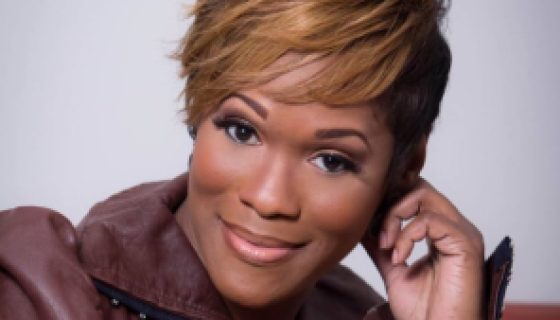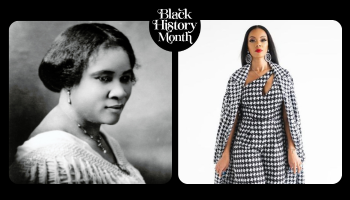
Source: Power 105 / Power 105
Kamala Devi Harris, (born October 20, 1964) is an American attorney and politician who has served as the junior United States Senator from California since 2017. A member of the Democratic Party, she previously served as the 32nd Attorney General of California from 2011 to 2017, and as the 27th District Attorney of San Francisco from 2004 to 2011. On January 21, 2019, she officially announced her campaign to run for the Democratic nomination for President of the United States in the 2020 United States presidential election.
Harris was born in Oakland, California, and is a graduate of Howard University and University of California, Hastings College of the Law. In the 1990s, she worked in the San Francisco District Attorney’s Office and the City Attorney of San Francisco‘s office. In 2004, she was elected District attorney of San Francisco.
Harris was narrowly elected as California’s Attorney General in 2010 and was reelected in 2014 by a wide margin. On November 8, 2016, she defeated Loretta Sanchez in the 2016 Senate election to succeed outgoing Senator Barbara Boxer, becoming California’s third female U.S. Senator, and the first of Jamaican or Indian ancestry.
Since becoming a Senator, Harris has supported Medicare-for-all, legalization of recreational marijuana, sanctuary cities, passing a DREAM Act, and lowering taxes for the working and middle classes while raising taxes on corporations and the wealthiest top 1% of Americans.
Harris launched her presidential campaign on January 27, 2019, where she vowed to fight for the “largest middle class tax cut in a generation.”
Early life and education
Kamala Harris was born on October 20, 1964, in Oakland, California, to a Tamil Indian mother and a Jamaican father. Her mother, Shyamala Gopalan Harris, was a breast cancer scientist who immigrated to the United States from Madras (present-day Chennai) in 1960. Her father, Donald Harris, is a Stanford University economics professor who emigrated from Jamaica in 1961 for graduate study in economics at University of California, Berkeley. Despite this, Kamala Harris is most often referred to as African American rather than Caribbean American. CNN‘s April Ryan has suggested that due to the history of slavery in Jamaica, Harris may indeed be of partially African descent. Recalling the lives of his grandmothers, Donald Harris wrote that one was related to a plantation owner while the other had unknown ancestry.
Her name, Kamala, comes from the Sanskrit word for the lotus flower. Her family lived in Berkeley, California, where both of her parents attended graduate school. She was close to her maternal grandfather, P. V. Gopalan, an Indian diplomat. As a child, she frequently visited her extended family in the Besant Nagar neighborhood of Chennai, Tamil Nadu. Harris grew up going to both a black Baptist churchand a Hindu temple. She has one younger sister, Maya Harris.They both sang in a Baptist choir.
Harris’s parents divorced when she was seven, and her mother was granted custody of the children by court-ordered settlement. After the divorce, when Harris was 12, her mother moved with the children to Montreal, Québec, Canada, where Shyamala accepted a position doing research at Jewish General Hospital and teaching at McGill University.
After graduating from Westmount High School in the Westmount suburb near downtown Montreal in 1981, Harris attended Howard University in Washington, D.C., where she majored in political science and economics. At Howard, Harris was elected to the liberal arts student council as freshman class representative, was a member of the debate team, and joined the Alpha Chapter of Alpha Kappa Alpha sorority.
Harris returned to California, where she earned her Juris Doctor (J.D.) from the University of California, Hastings College of the Law, in 1989. She was admitted to the State Bar of California in 1990.
Early career
Harris served as a deputy district attorney in Alameda County, California, from 1990 to 1998. Harris says she sought a career in law enforcement because she wanted to be “at the table where decisions are made”. During this time she was appointed to several state boards. In 2000, San Francisco’s elected City Attorney, Louise Renne, recruited Harris to join her office, where she was chief of the Community and Neighborhood Division, which oversees civil code enforcement matters.
District Attorney of the City and County of San Francisco
Harris defeated two-term incumbent Terence Hallinan in the 2003 election to become District Attorney of the City and County of San Francisco.
In April 2004, San Francisco Police Department Officer Isaac Espinoza was shot and killed in the line of duty. Three days later, Harris announced she would not seek the death penalty, infuriating the San Francisco Police Officers Association. During Officer Espinoza’s funeral at St. Mary’s Cathedral, U.S. Senator and former San Francisco mayor Dianne Feinstein rose to the pulpit and called on Harris, who was sitting in the front pew, to secure the death penalty, prompting a standing ovation from the 2,000 uniformed police officers in attendance. Harris still refused. Officer Espinoza’s killer was convicted of the murder and sentenced to life in prison. Shortly thereafter, Harris demoted veteran career prosecutor Paul Cummins, the chief assistant to her predecessor from the 80-person felony prosecution unit to Harris’ former position in the DA’s office.
In 2004, as District Attorney, Harris started the Back On Track initiative, a reentry program. Initiative participants (who are nonviolent, first-time drug offenders whose crimes were not weapon- or gang-related) plead guilty in exchange for a deferral of sentencing and regular appearances before a judge over a year-long period. Participants who succeed in obtaining a high-school-equivalency diploma, maintaining steady employment, taking parenting classes, and passing drug tests have their records cleared. Over eight years, the program produced fewer than 300 graduates, but achieved a very low recidivism rate. In 2009, a state law (the Back on Track Reentry Act, Assembly Bill 750) was enacted, encouraging other counties to start programs around a similar model. Arnold Schwarzenegger signed the bill into law. The program encountered some controversy because it initially included illegal immigrants, including one, Alexander Izaguirre, who was later arrested for assault. Harris said allowing persons not eligible to work in the United States was a mistake, and subsequently modified the program to bar anyone who could not legally be employed in the United States.
Harris was re-elected in 2007 when she ran unopposed.
In 2008, Harris was seen as one of a number of women who could become president of the United States.
In 2009, Harris’s book Smart on Crime: A Career Prosecutor’s Plan to Make Us Safer was published by Chronicle Books. In the book, Harris touted her Back On Track initiative and argued for what she referred to as “a smarter approach when it comes to combating nonviolent crime” emphasizing crime prevention, truancy prevention, and the treatment of post-traumatic stress disorder in children. The book discusses a series of “myths” surrounding the criminal justice system and presents proposals to reduce and prevent crime. Recognized by The Los Angeles Daily Journal as one of the top 100 lawyers in California, Harris served on the board of the California District Attorney’s Association and was vice president of the National District Attorneys Association.
In 2013, a report by the San Francisco Weekly reported that the San Francisco Police Department and Harris’s office shielded Abraham H. Guerra Sr., a high-ranking member of the Norteño gang, from returning to prison due to parole violations because Guerra was an informant who provided authorities with information.
Violent crimes, felons, incarceration, and conviction rate
While Harris was the San Francisco District Attorney, the overall felony conviction rate rose from 52% in 2003 to 67% in 2006, the highest in a decade; there was an 85% conviction rate for homicides, and convictions of drug dealers increased from 56% in 2003 to 74% in 2006. While these statistics represent only trial convictions, Harris also closed many cases via plea bargains. When she took office, she took a special interest in clearing part of the murder caseload from the previous administration. Harris stated that the records from that administration were less than optimal, and worked to get convictions on what she could. Out of the 73 homicide cases backlogged, 32 cases took deals for lesser charges such as manslaughter or took pleas to other crimes such as assault or burglary while the murder charges were dismissed.
Officers within the SFPD credited Harris with tightening loopholes in bail and drug programs that defendants had exploited in the past. They also accused her of being too deliberate in her prosecution of murder suspects. Additionally, in 2009, San Francisco prosecutors won a lower percentage of their felony jury trials than their counterparts at district attorneys’ offices covering the 10 largest cities in California, according to data on case outcomes compiled by officials at the San Francisco Superior Court as well as by other county courts and prosecutors. (Officials in Sacramento, the sixth-largest city in California, did not provide data.) Harris’s at-trial felony conviction rate that year was 76%, down 12 points from the previous year. The then-most recent recorded statewide average was 83%, according to statistics from the California Judicial Council. In a small sample, a report computed that the conviction rate for felony trials in San Francisco County in the first three months of 2010 was 53%. San Francisco has historically had one of the lowest conviction rates in the state; the county is known for a defendant-friendly jury pool.
In 2012, Superior Court Judge Anne-Christine Massullo ruled that San Francisco District Attorney Harris’s office violated defendants’ rights by hiding damaging information about a police crime lab technician, and was indifferent to demands that it account for its failings.
Hate crimes and civil rights
As San Francisco District Attorney, Harris created a special Hate Crimes Unit, focusing on hate crimes against LGBT children and teens in schools. She convened a national conference to confront the “gay-transgender panic defense“, which has been used to justify violent hate crimes. Harris supports same-sex marriage in California and opposed both Proposition 22 and Proposition 8.
In 2004, The National Urban League honored Harris as a “Woman of Power”. In 2005, she received the Thurgood Marshall Award from the National Black Prosecutors Association. In her campaign for California Attorney General, she received the endorsements of numerous groups including EMILY’s List, California Legislative Black Caucus, Asian American Action Fund, Black Women Organized for Political Action, the National Women’s Political Caucus, Mexican American Bar Association, and South Asians for Opportunity.
Attorney General of California
2010 election
On November 12, 2008, Harris announced her candidacy for California Attorney General. Both of California’s United States Senators, Dianne Feinstein and Barbara Boxer, as well as House Speaker Nancy Pelosi, endorsed Harris during the Democratic Party primary. In the June 8, 2010, primary, she was nominated with 33.6% of the vote, defeating Alberto Torrico (who received had 15.6% of the vote) and Chris Kelly (who received 15.5%).
In her campaign for California Attorney General, Harris received the endorsements of United Farm Workers cofounder Dolores Huerta, United Educators of San Francisco, and San Francisco Firefighters Local 798. She also received the endorsement of Antonio Villaraigosa, Mayor of Los Angeles. In the general election, she faced Los Angeles County District Attorney Steve Cooley. On election night, November 2, 2010, Cooley prematurely declared victory, but many ballots remained uncounted. On November 24, as the count advanced, Harris was leading by more than 55,000 votes, and Cooley conceded. On January 3, 2011, Harris became the first female,[40] Jamaican-American, and Indian-American attorney general in California.
2014 election
Harris announced her intention to run for re-election in February 2014 and filed paperwork to run on February 12. According to the office of California Secretary of StateDebra Bowen, Harris had raised the money for her campaign during the previous year in 2013. The Sacramento Bee, Los Angeles Daily News, and The Los Angeles Times endorsed Harris for reelection.
On November 4, 2014, Harris was re-elected against Republican Ronald Gold.
Tenure as California Attorney General
Housing
When Harris took office in 2011, California was still reeling from the effects of the subprime mortgage crisis. In 2012, she participated in the National Mortgage Settlement against five banks, securing $12 billion of debt reduction for the state’s homeowners and $26 billion overall.
She introduced the California Homeowner’s Bill of Rights in the California State Legislature, a set of laws which took effect on January 1, 2013, banning the practices of “dual-tracking” (processing a modification and foreclosure at the same time) and robo-signing, and provided homeowners with a single point of contact at their lending institution. It also gave the California Attorney General more power to investigate and prosecute financial fraud and to convene special grand juries to prosecute multi-county crimes instead of prosecuting a single crime county by county.
Prison conditions and sentencing reform
After the United States Supreme Court in Brown v. Plata (2011) declared California’s prisons so overcrowded they inflicted cruel and unusual punishment, Harris fought federal court supervision, explaining “I have a client, and I don’t get to choose my client.” After California failed to fully implement the court’s order to reduce crowding, and was ordered to implement new parole programs, the State of California appealed the decision, and in court filings the AG’s office argued that if forced to release these inmates early, prisons would lose an important source of labor, such as for fighting wildfires. Prisoners in California earn between 8 and 37 cents per hour in maintenance and kitchen jobs; prisoner firefighters receive higher pay, at $1 per hour. Harris later backed away from her office’s argument in the prison-litigation case, telling the website ThinkProgress: “The way that argument played out in court does not reflect my priorities… The idea that we incarcerate people to have indentured servants is one of the worst possible perceptions. I feel very strongly about that. It evokes images of chain gangs.”
Harris refused to take any position on criminal sentencing-reform initiatives Proposition 36 (2012) and Proposition 47 (2014), arguing it would be improper because her office prepares the ballot booklets. Former California Attorney General John Van de Kampconsidered her explanation “baloney.”
Michelle-Lael Norsworthy case
In February 2014, Michelle-Lael Norsworthy, a transgender woman incarcerated at California’s Mule Creek State Prison, filed a federal lawsuit based on the state’s failure to provide her with what she argued was medically necessary sex reassignment surgery (SRS). In April 2015, a federal judge ordered the California Department of Corrections and Rehabilitation (CDCR) to provide Norsworthy with SRS, finding that prison officials had been “deliberately indifferent to her serious medical need.” Harris, representing CDCR, challenged the order in the 9th Circuit Court of Appeals. Harris argued that “Norsworthy has been receiving hormone therapy for her gender dysphoria since 2000, and continues to receive hormone therapy and other forms of treatment” and that “there is no evidence that Norsworthy is in serious, immediate physical or emotional danger.”
In August 2015, while the state’s appeal was pending, Norsworthy was released on parole, obviating the state’s duty to provide her with inmate medical care and rendering the case moot. Harris maintained that the parole review process was independent of Norsworthy’s legal case against CDCR, although the Ninth Circuit, in its opinion, said it was possible that Norsworthy’s release on parole, ahead of her scheduled SRS, may have been influenced by CDCR officials.
Prosecuting financial crimes
Harris has prosecuted numerous financial crimes, such as predatory lending. In 2011, while serving as Attorney General of California, she created the Mortgage Fraud Strike Force which had a mandate to eliminate mortgage foreclosure fraud. The task force has been criticized for not filing as many foreclosure cases as in states with smaller populations.
In 2013, Harris did not prosecute Steve Mnuchin‘s bank OneWest despite evidence “suggestive of widespread misconduct” according to a leaked memo from the Department of Justice. In 2017, Harris said that her office’s decision not to prosecute Mnuchin was based on “following the facts and the evidence…like any other case”. In 2016, Mnuchin donated $2,000 to Harris’ campaign, making her the only 2016 Senate Democratic candidate to get cash from Mnuchin, but as senator, Harris voted against the confirmation of Mnuchin as Secretary of the Treasury.
County prosecutors’ misconduct
In 2015, Harris defended convictions obtained by county prosecutors who had inserted a false confession into an interrogation transcript, committed perjury, and withheld evidence. Federal appeals court Judge Alex Kozinski threw out the convictions, telling Harris’s lawyers, “Talk to the attorney general and make sure she understands the gravity of the situation.”
In March 2015, a California superior courts judge ordered Harris to take over a criminal case after Orange County District Attorney Tony Rackauckas was revealed to have illegally employed jailhouse informants and concealed evidence. Harris refused, appealing the order and defending Rackauckas.
Harris appealed the dismissal of an indictment when it was discovered a Kern County prosecutor perjured in submitting a falsified confession as court evidence. Harris asserted that prosecutorial perjury was not sufficient to demonstrate prosecutorial misconduct. In the case, Harris argued that only abject physical brutality would warrant a finding of prosecutorial misconduct and the dismissal of an indictment, and that perjury was not sufficient.
Bureau of Children’s Justice
On February 12, 2015, Harris announced that she would start a new agency called the Bureau of Children’s Justice. The bureau would work on issues such as foster care, the juvenile justice system, school truancy, and childhood trauma. Harris appointed special assistant attorney general Jill Habig to head the agency.
Oil and gas companies
After an oil spill from a pipeline caused damage to the California coastline in May 2015, Harris toured the coastline and directed her office’s resources and attorneys to investigate possible criminal violations. The investigations led to dozens of indictments. In June 2016, Harris issued subpoenas to Chevron, ExxonMobil, Shell, Phillips 66, Valero Energy, and Tesoro relating to an investigation into possible price-fixing.
Mitrice Richardson case
Mitrice Richardson was a 24-year-old African American woman who was released from the Los Angeles County Sheriff Department in the middle of the night without any means of fending for herself. Her body was later found in an isolated canyon, leaving the family with many unanswered questions. In 2016, the Attorney General opened a criminal investigation into the Los Angeles County Sheriff’s Department‘s handling of the Mitrice Richardson case. The AG’s Office had originally declined the request of the Richardson family to investigate the case, but reversed course after the family and supporters submitted almost 500 pages of evidence to Harris’s office in the hope of prompting an investigation. In December 2016, the California Attorney General’s Office closed the investigation, concluding that there was insufficient evidence to support criminal prosecution of anyone involved in the handling of the Richardson case.
Backpage cases
On October 6, 2016, Harris announced the arrest of Backpage CEO Carl Ferrer on felony charges of pimping a minor, pimping, and conspiracy to commit pimping. The arrest warrant alleged that 99% of Backpage’s revenue was directly attributable to prostitution-related ads, many of which involved victims of sex trafficking, including children under the age of 18.
On December 9, 2016, a superior court judge dismissed all charges in the complaint. On December 23, 2016, Harris filed new charges against Ferrer and former Backpage owners Mike Lacey and Jim Larkin for pimping and money laundering. In January 2017, Backpage announced that it was removing its adult section from all of its sites in the United States stating that it was due to many years of harassment and extralegal tactics. The investigations continued after Harris became a senator, and on April 6, 2018, Backpage and affiliated sites were seized in an enforcement action by the Federal Bureau of Investigation, U.S. Postal Inspection Service, United States Department of Justice, and Internal Revenue Service. Ferrer subsequently pleaded guilty to charges of facilitating prostitution and money laundering.
Mobile-app user privacy
Supreme Court and U.S. Attorney General speculation
During Obama’s presidency, Harris was mentioned as a possible nominee for the United States Supreme Court or U.S. Attorney General, but she was not nominated to either office.[108][additional citation(s) needed]
2016 election
After Senator Barbara Boxer (D-CA) announced her intention to retire from the United States Senate at the end of her term in 2016, after which she would have served as California’s junior senator for 24 years, Harris was the first candidate to declare her intention to run for Boxer’s senate seat. Media outlets reported that Harris would run for senate on the same day that Gavin Newsom, California’s Lieutenant Governor and a close political ally of Harris, announced he would not seek to succeed Boxer. Harris officially announced the launch of her campaign on January 13, 2015.
After holding a flurry of fundraisers in both California and Washington, D.C., Harris was reported to have raised $2.5 million for her campaign. In December, the National Journal released a story describing Harris’s use of funds on hotels, the laying off of campaign staff and the inordinate totals, which had contributed to her money on hand being closer to that of another candidate, Loretta Sanchez, who had $1.6 million.
Harris was a frontrunner from the beginning of her campaign. In January 2015, weeks after Harris announced her campaign, a survey by Public Policy Polling showed Harris leading by 41% to former Los Angeles Mayor Antonio Villaraigosa‘s 16%, who was seen as a potential candidate. In May, a Field Poll was released, showing that although 58% of likely voters did not have a favored candidate, Harris was most preferred out of the field, with 19%. October saw the release of a Field Poll with Harris at 30%, and fellow Democratic candidate Loretta Sanchez in second place at 17%, the former having increased her support by 11% since the Field Poll in May despite being noted by The Sacramento Bee as not being active in campaigning since appearing at the California Democratic Party‘s convention.
In late February 2016, the California Democratic Party voted at its state convention to endorse Harris, who received 78% of the vote – 18% more than the 60% needed to secure the endorsement. The party endorsement did not secure any candidate a place in the general election, as all candidates would participate in one primary election in June, after which the top two candidates from any party would advance to the general election. Harris participated in debates with the other major candidates for the seat, her front-runner status causing her to be at the center of discussion. Governor Jerry Brown endorsed Harris on May 23. Harris came in first place on primary day, June 7, with 40% of the votes, entering a runoff with fellow Democratic candidate Loretta Sanchez. On July 19, President Barack Obama and Vice President Joe Biden endorsed Harris.
In the June 2016 primary election, with results detailed at the county level, Harris won 48 of 58 counties. Harris won seven counties with more than 50% of the vote: Alameda, Contra Costa, Marin, San Francisco, San Mateo, Santa Cruz, and Sonoma. The highest percentage was San Francisco, with 70.4% of the vote. She faced Congresswoman Loretta Sanchez, also a Democrat, in the general election. This assured that the seat would stay in Democratic hands; it was the first time a Republican did not appear in a general election for the Senate since California began directly electing senators in 1914.
In the November 2016 election, Harris defeated Sanchez with 62 percent of the vote, carrying all but four counties. Following her victory, Harris promised to protect immigrants from the policies of President-elect Donald Trump.
Following her election to the United States Senate, Harris announced her intention to remain California’s Attorney General through the end of 2016 and resign shortly before being sworn in as Senator on January 3, 2017. Governor Jerry Brown announced his intention to nominate Congressman Xavier Becerra as her successor.
Tenure
On January 21, 2017, a day after President Trump was sworn into office, Harris called the message of Trump’s inaugural address “dark” when speaking during the Women’s March on Washington. On January 28, following Trump signing the Protecting the Nation from Foreign Terrorist Entry into the United States executive order, which saw citizens from several countries with Muslim majorities barred from entering the US for 90 days, Harris was one of many to describe it as a “Muslim ban”. When John F. Kelly was White House Chief of Staff, she called him at home to gather information and push back against the contentious executive order.
In early February, Harris spoke in opposition to Trump’s cabinet picks Betsy DeVos, for Secretary of Education, and Jeff Sessions, for United States Attorney General. Later that month, in her first speech on the senate floor, Harris spent 12 minutes critiquing Trump’s immigration policies. In early March, Harris called on Attorney General Sessions to resign, after it was reported that Sessions spoke twice with Russian Ambassador to the United States Sergey Kislyak. On March 14, Harris claimed repealing the Affordable Care Act would send the message of health care’s being a “privilege” rather than a “civil right”.
In a May 2017 interview, Harris criticized Republican representative Raul Labrador for saying that no one dies due to lack of access to health care.
On June 7, 2017, Harris garnered media attention for her questioning of Rod Rosenstein, the Deputy Attorney General, over the role he played in the May 2017 firing of James Comey, the Director of the Federal Bureau of Investigation. The prosecutorial nature of her questioning caused Senator John McCain, an ex officio member of the Intelligence Committee, and Senator Richard Burr, the committee chairman, to interrupt Harris and request that she be more respectful of the witness; other Democrats on the committee pointed out that they had asked similarly tough questions, but had not been interrupted. On June 13, Harris questioned Jeff Sessions, the Attorney General, on the same topic; Harris was again interrupted by McCain and Burr. Sessions stated that Harris’s mode of questioning “makes me nervous”; other Democratic members of the committee again pointed out that Harris was the only senator whose questioning was interrupted with an admonishment from the chairman. Burr’s singling out of Harris sparked suggestion in the news media that his behavior was sexist, with commentators arguing that Burr would not treat a male Senate colleague in a similar manner. The website True Pundit suggested that treating Harris differently from other members of the Intelligence Committee is evidence of racism. In addition, when CNN pundit Jason Miller described Harris as “hysterical”, Kirsten Powers, who was taking part in the same on-air segment, told Miller that his use of the term to describe Harris was sexist, and that he would not describe male senators in the same manner.
In a January 2018 hearing, Harris questioned Homeland Security Secretary Kirstjen Nielsen for favoring Norwegian immigrants over others and claiming to be unaware that Norway is a predominantly white country.
In an April 2018 hearing, Harris questioned Facebook CEO Mark Zuckerberg for Facebook’s misuse of users’ data.
In response to the administration’s family separation policy, Harris visited one of the detention facilities near the border in June 2018.
In the September and October 2018 Brett Kavanaugh Supreme Court confirmation hearings, Harris participated in questioning the FBI Director’s limited scope of the investigation on Kavanaugh.
Harris was one of the targets of the October 2018 United States mail bombing attempts.
source: wikipedia














